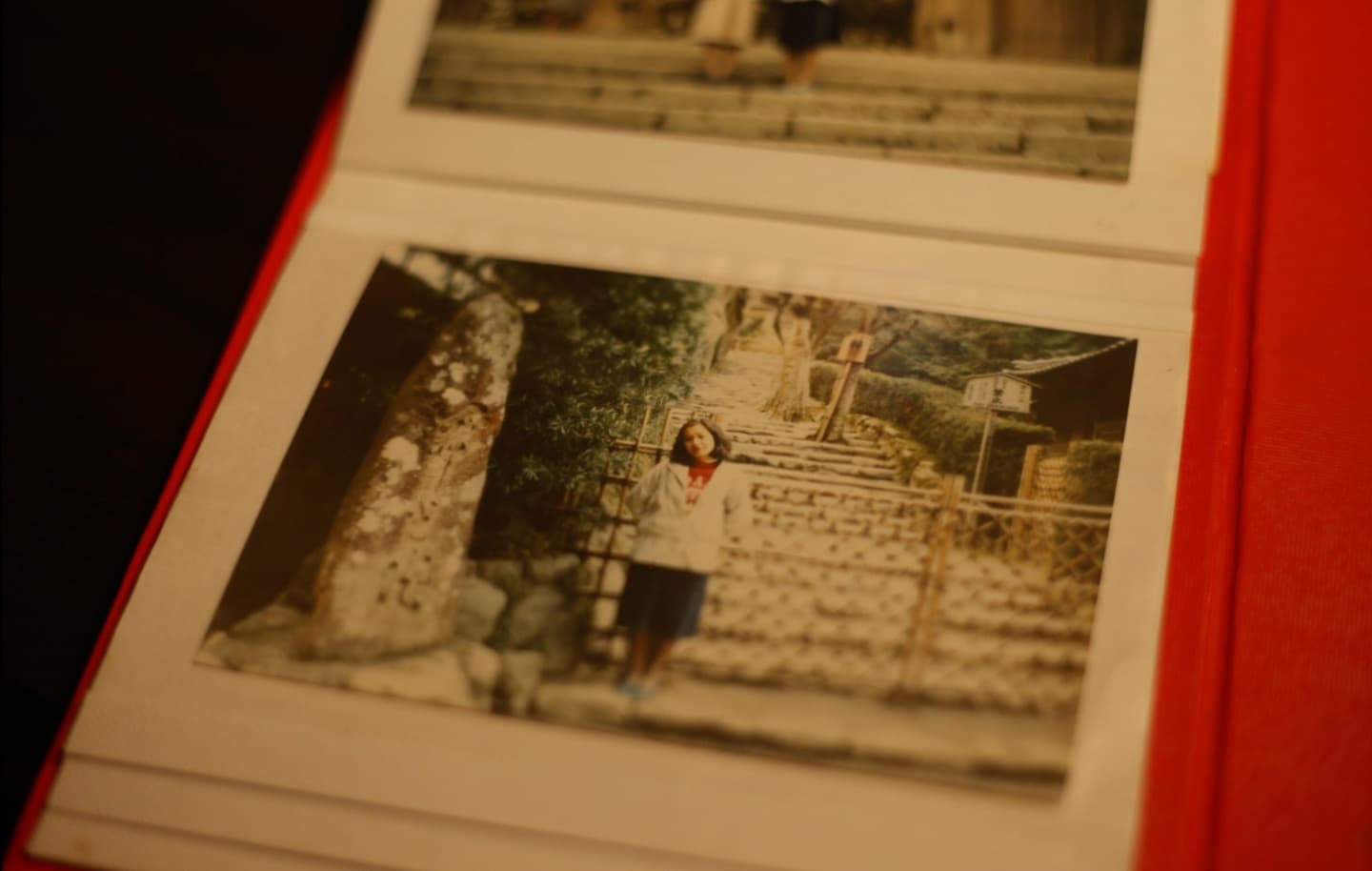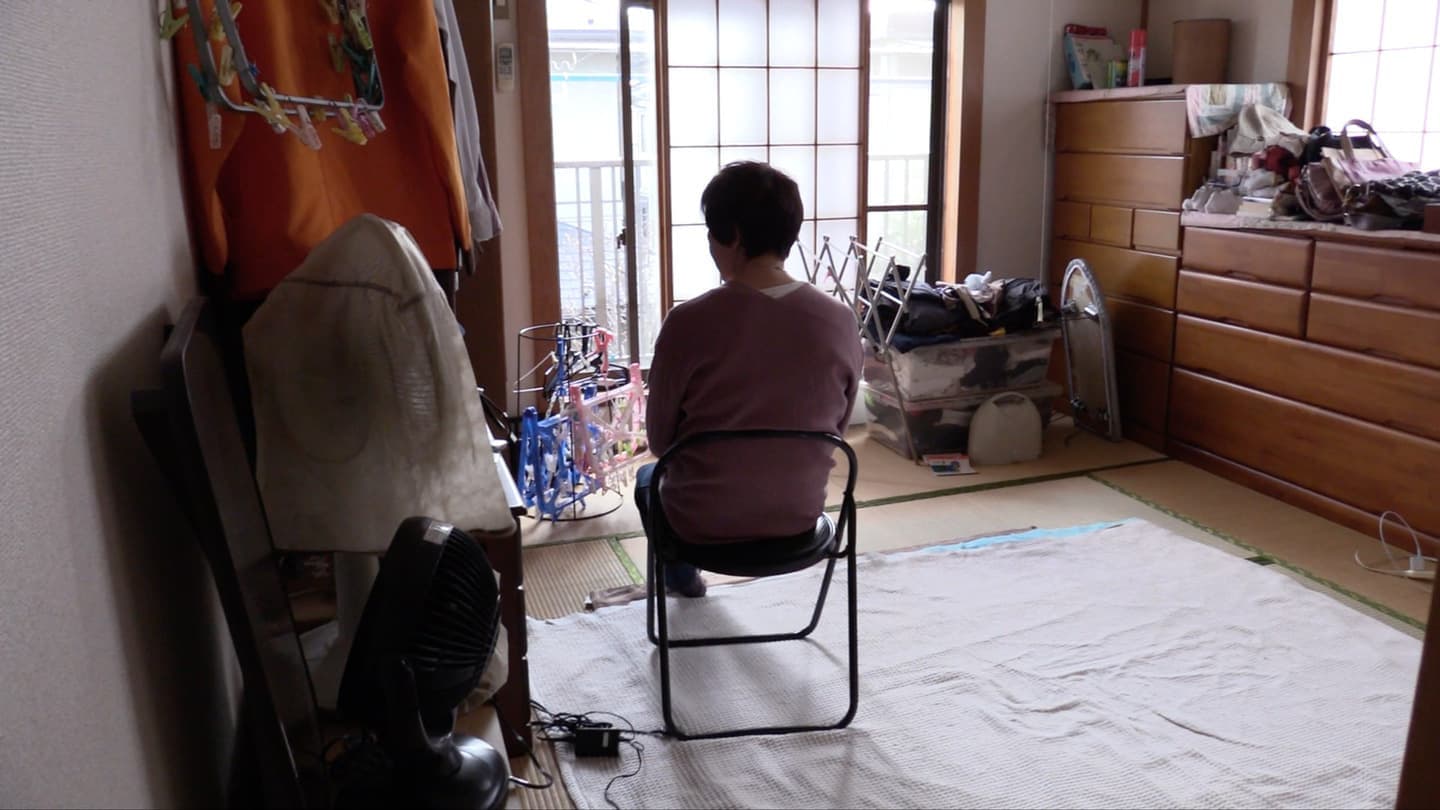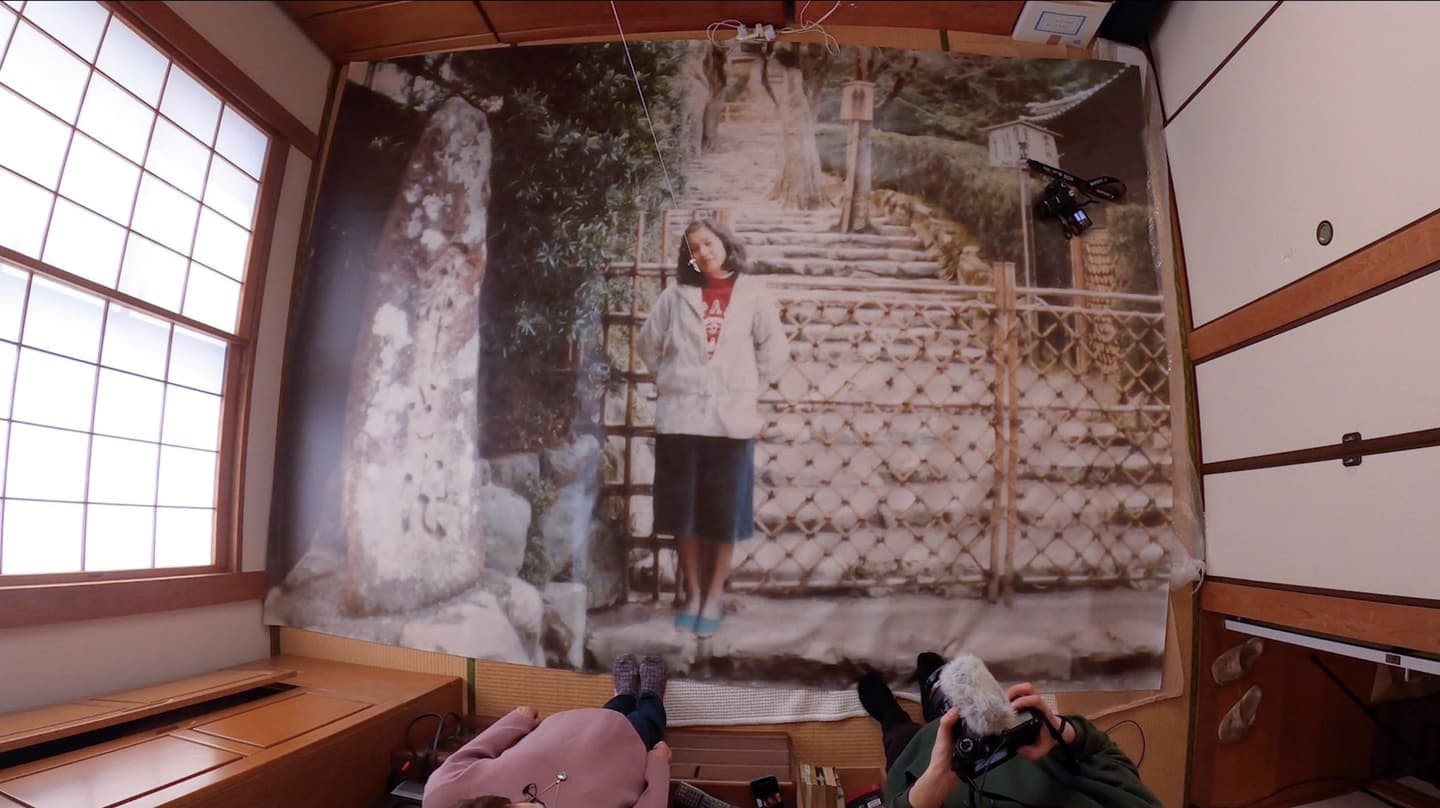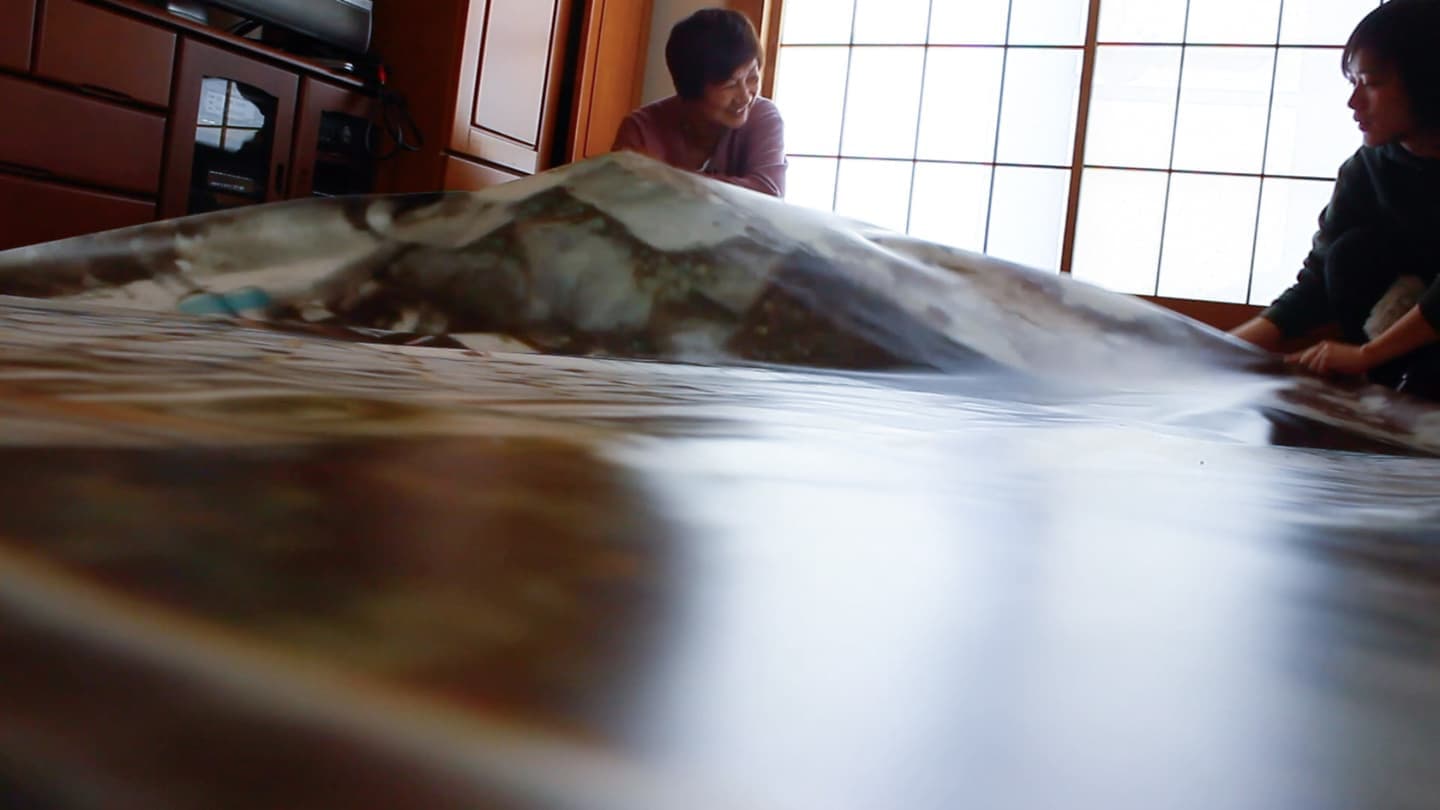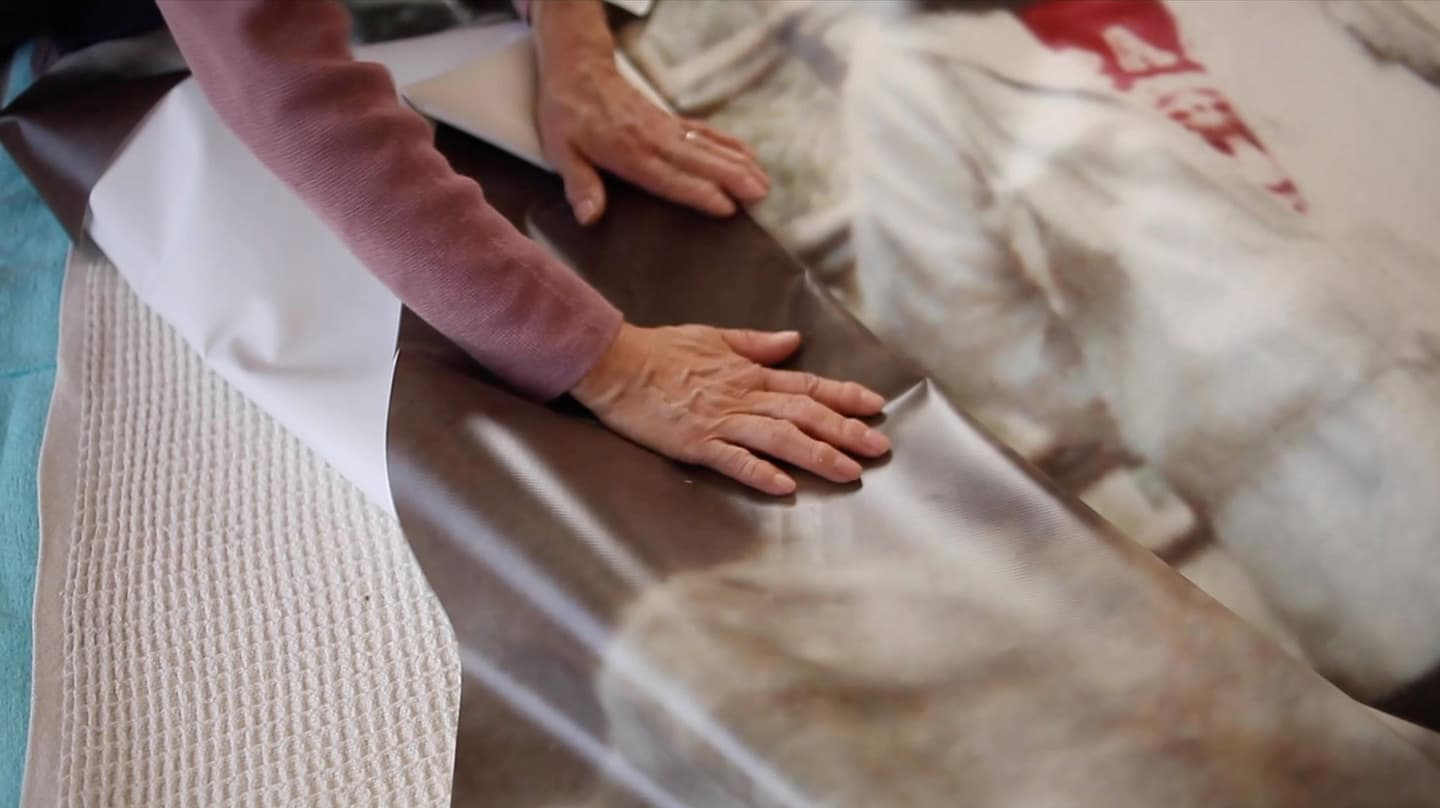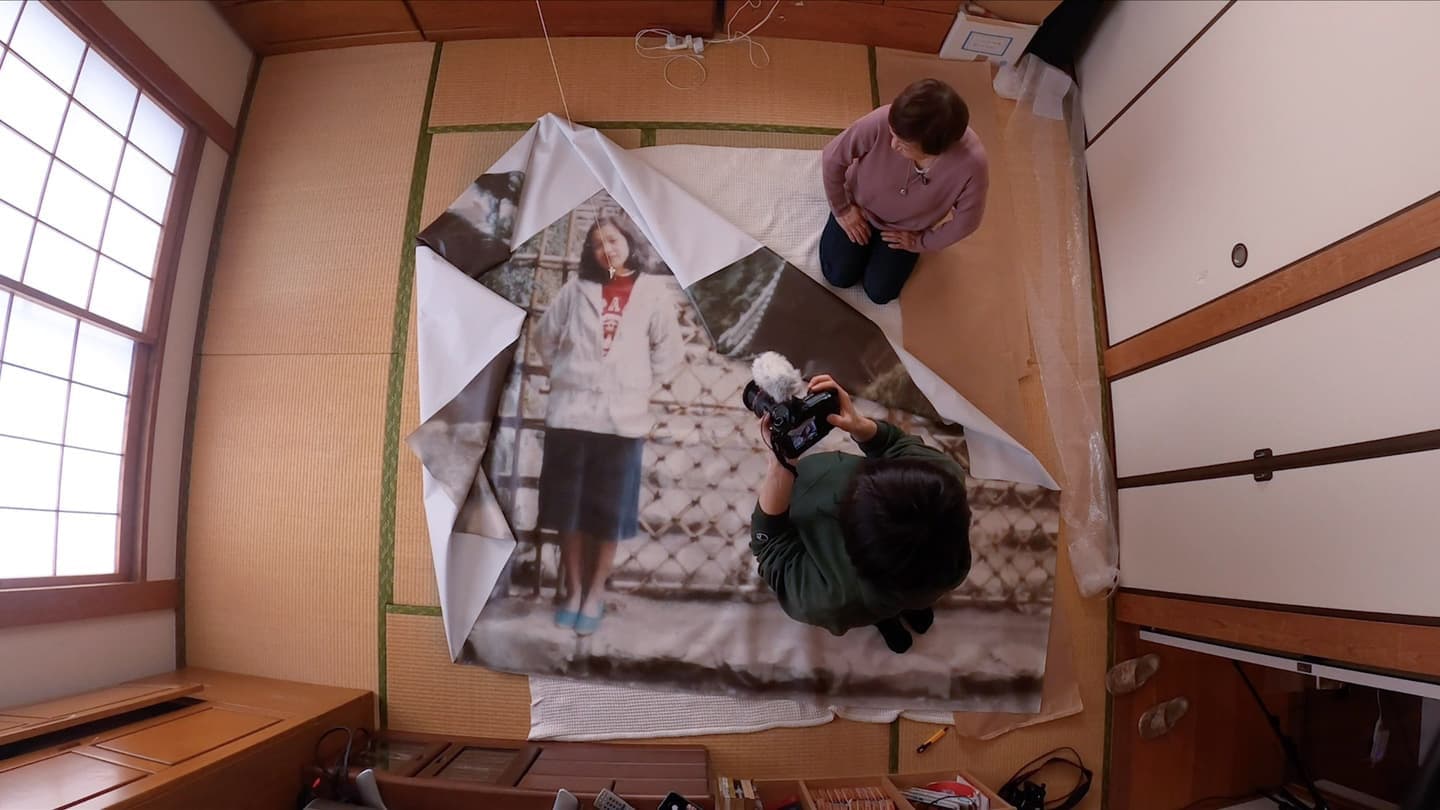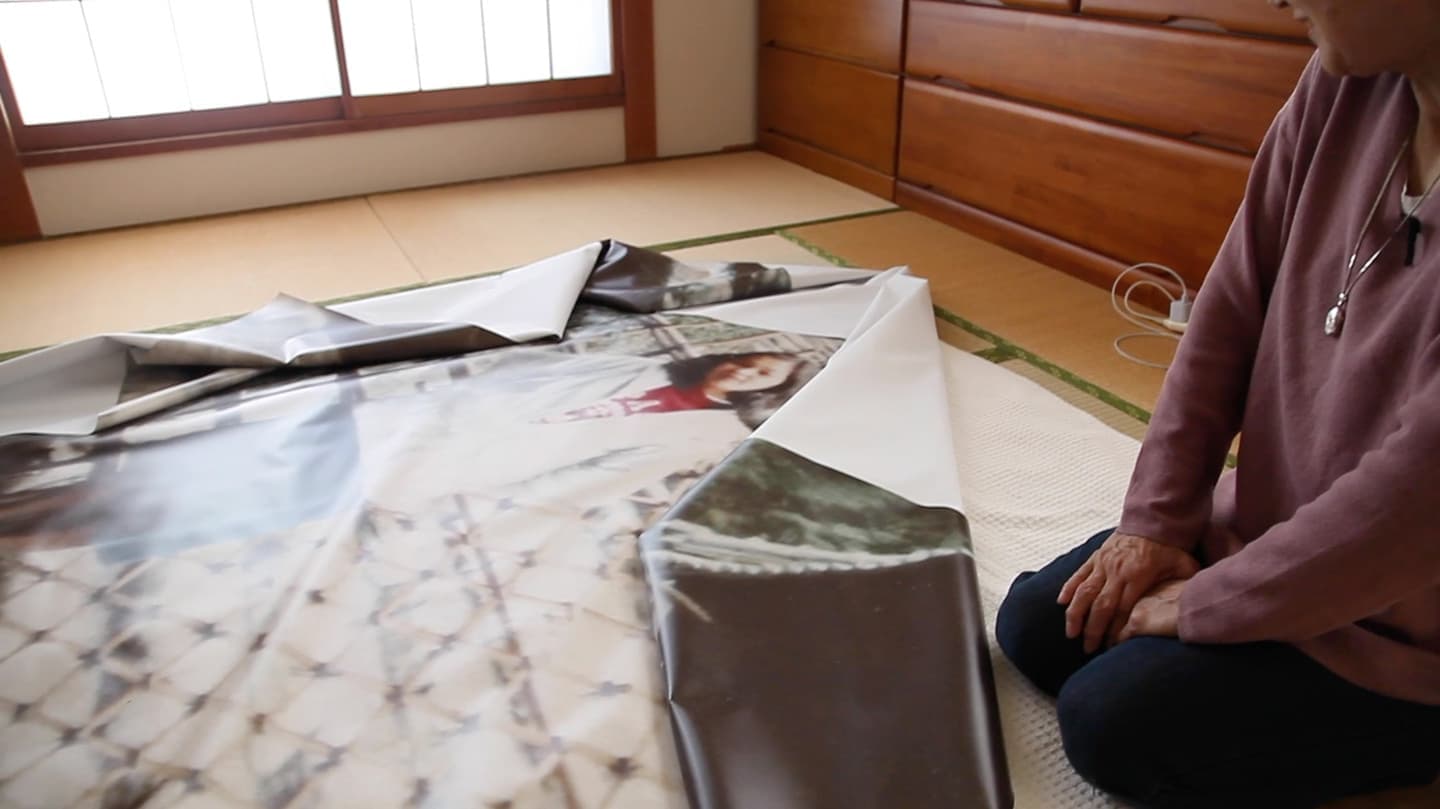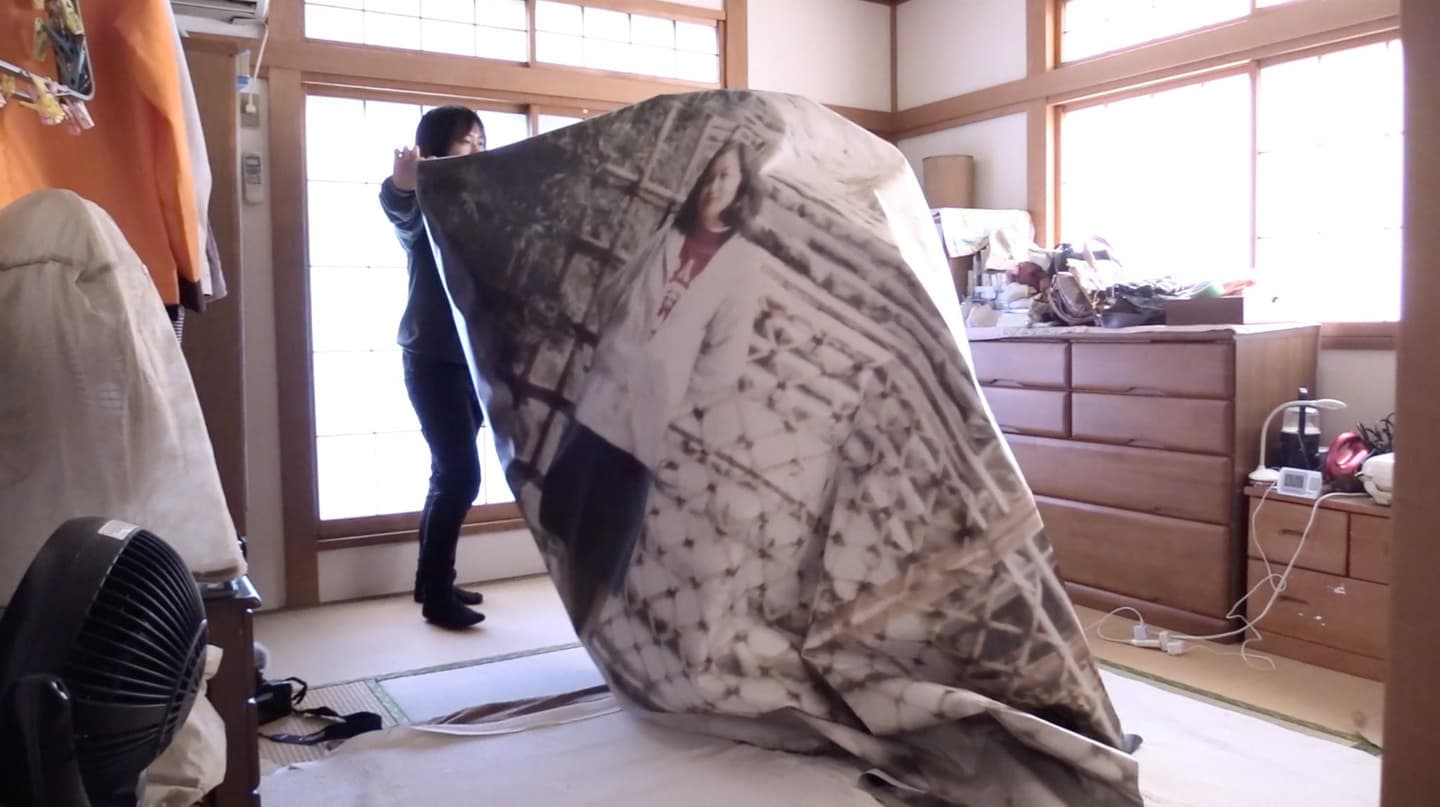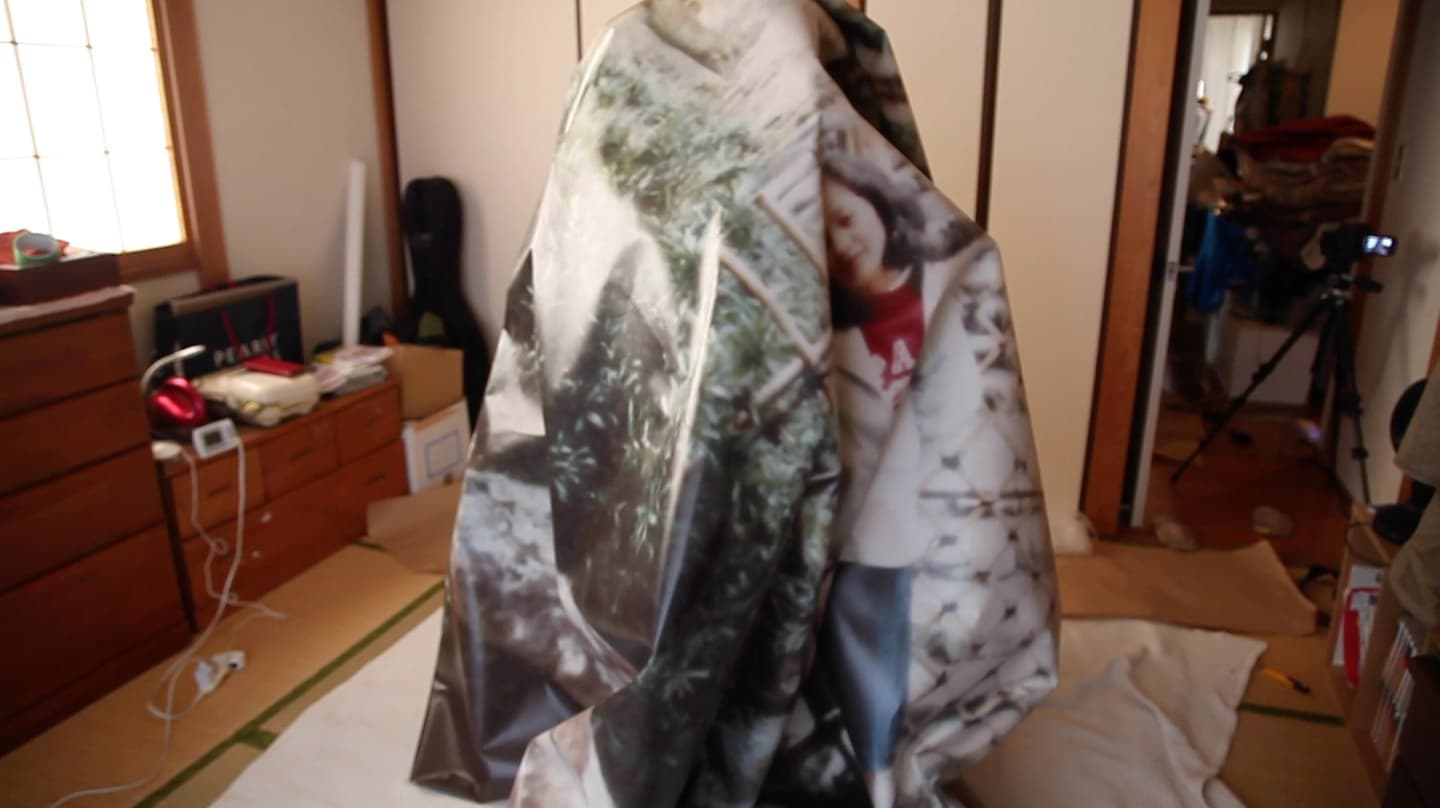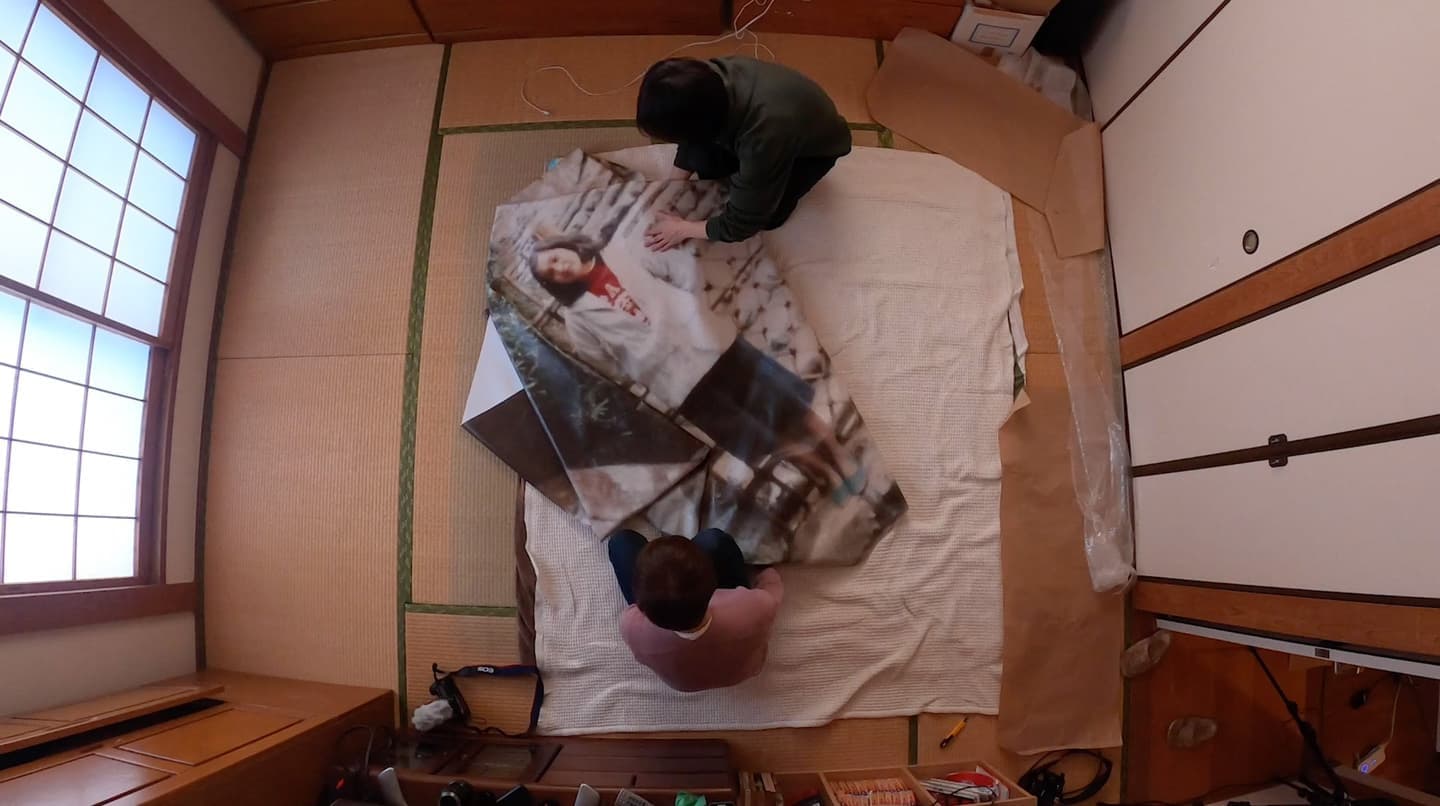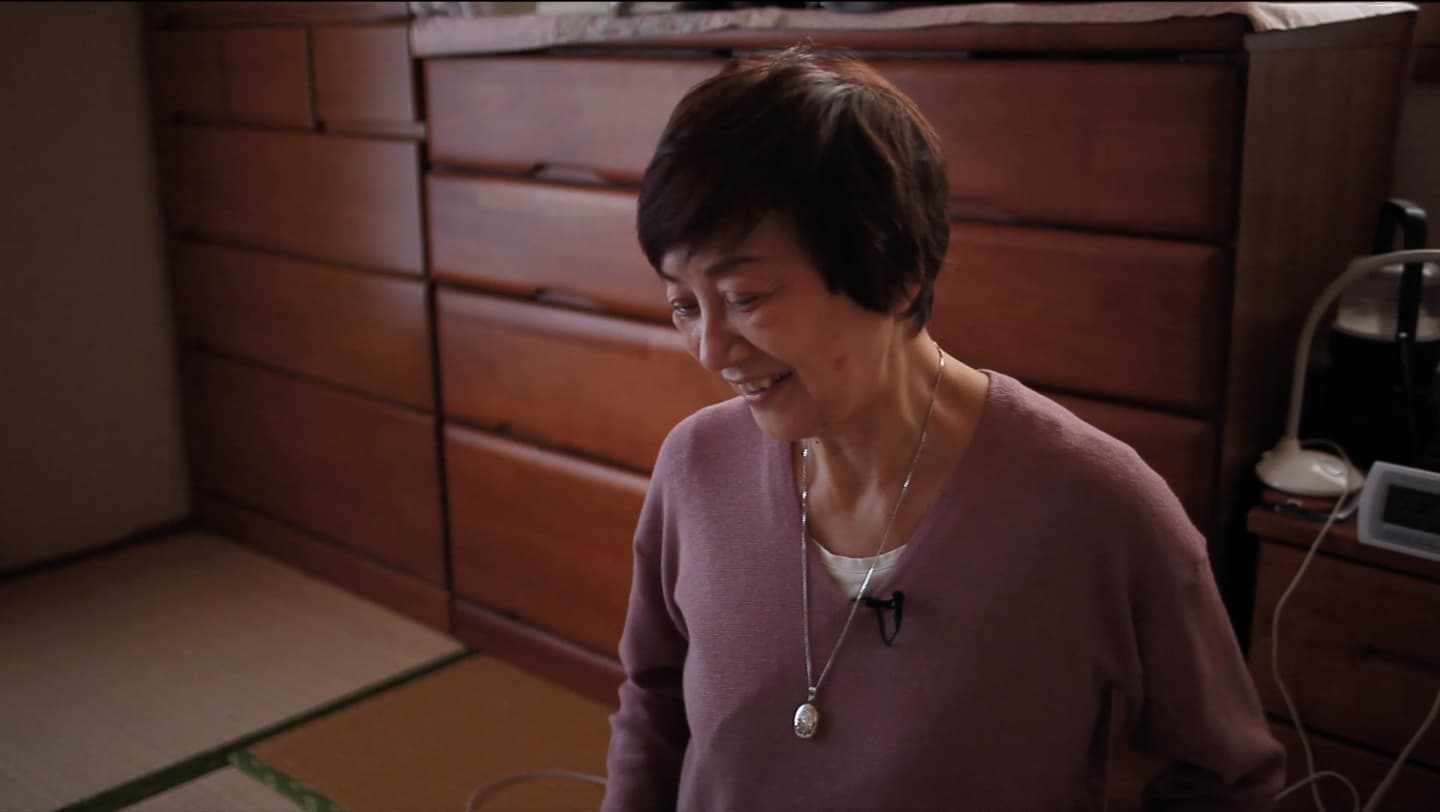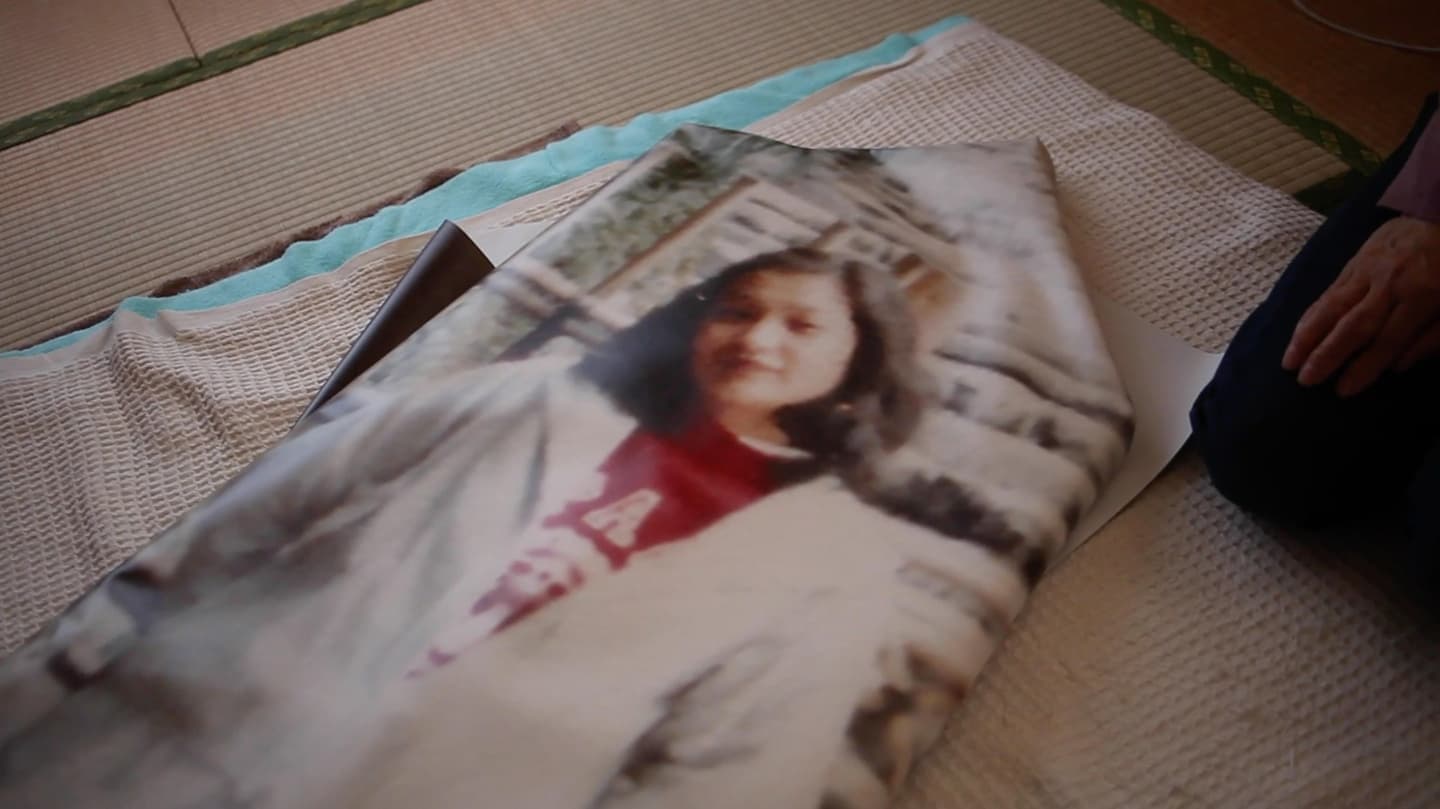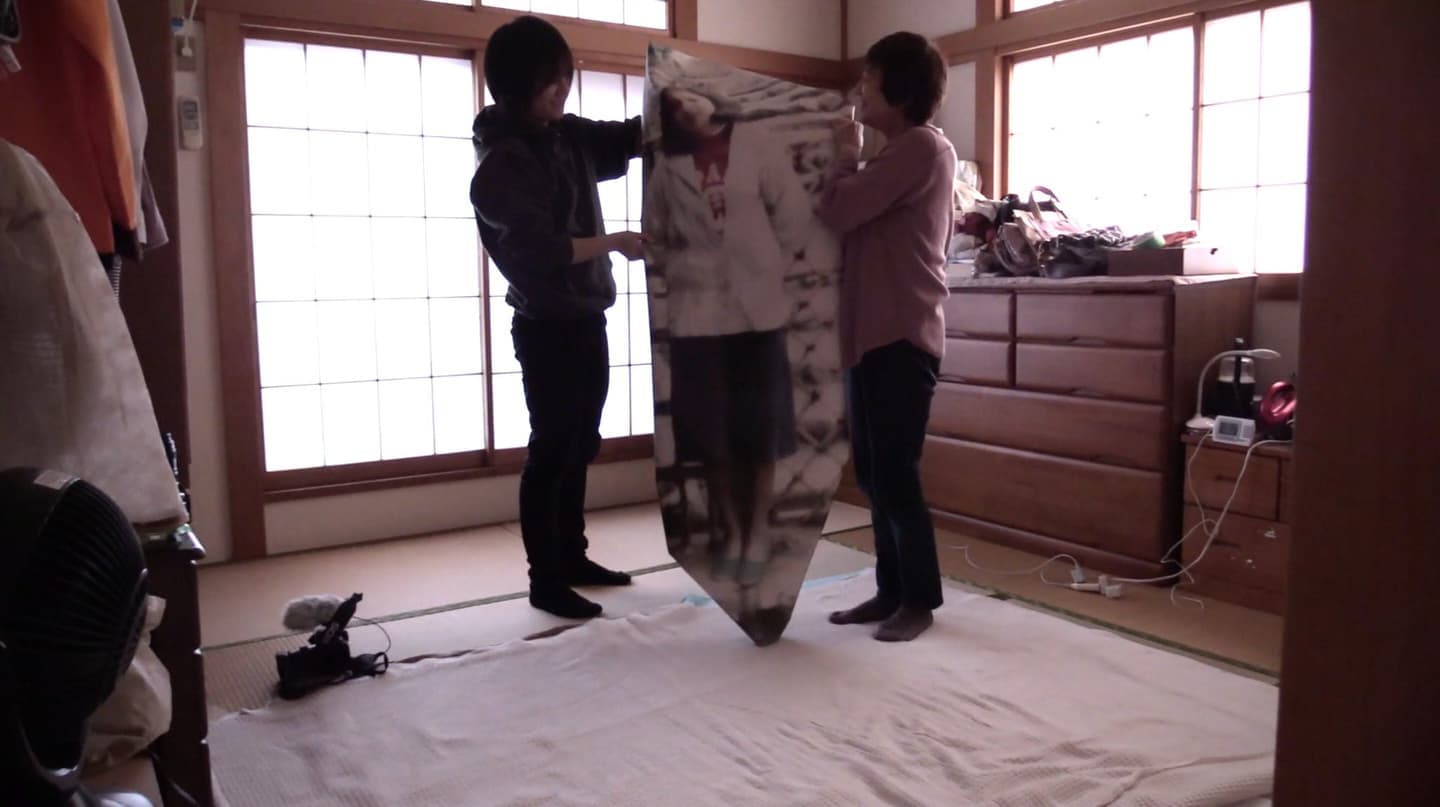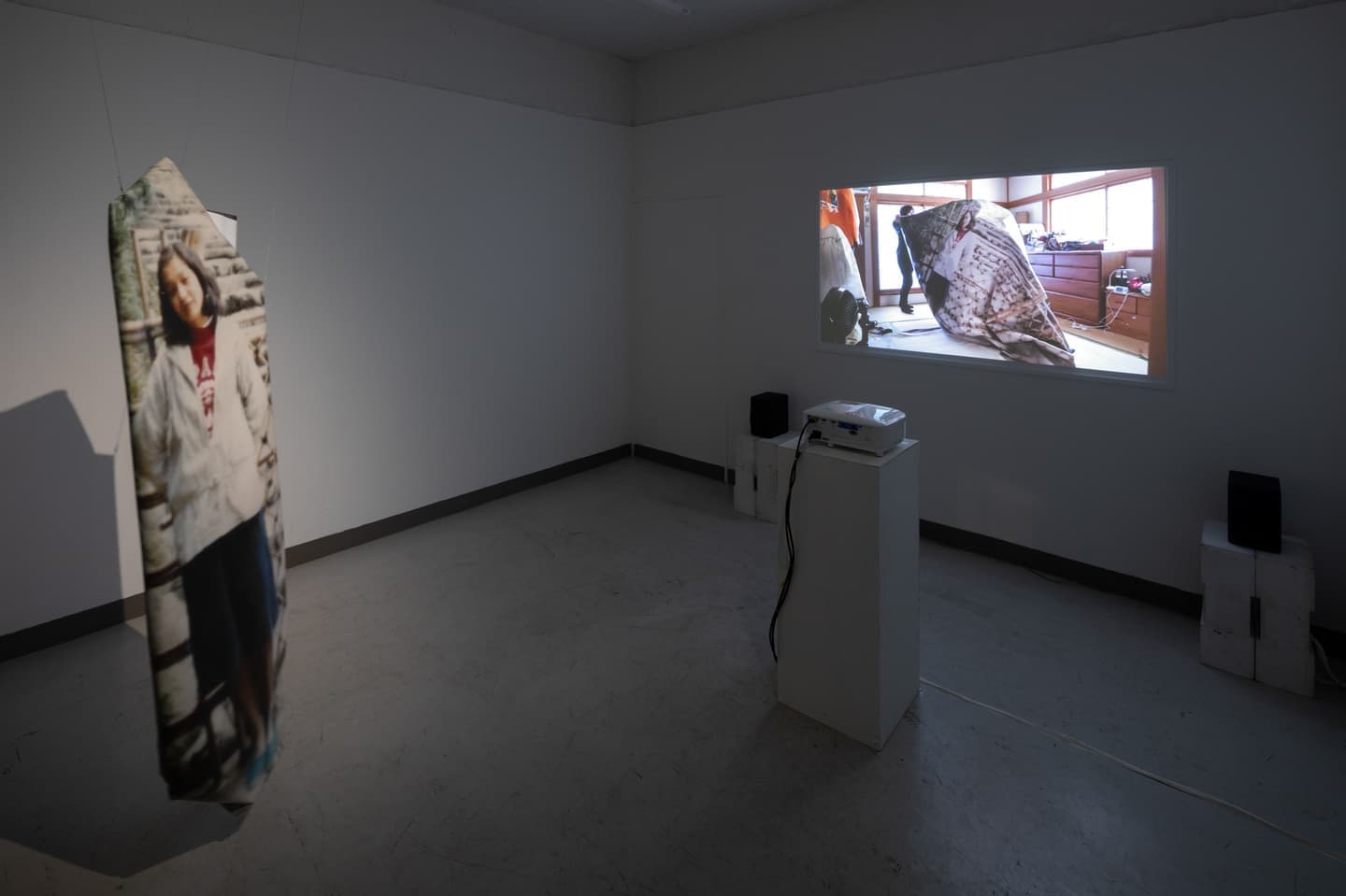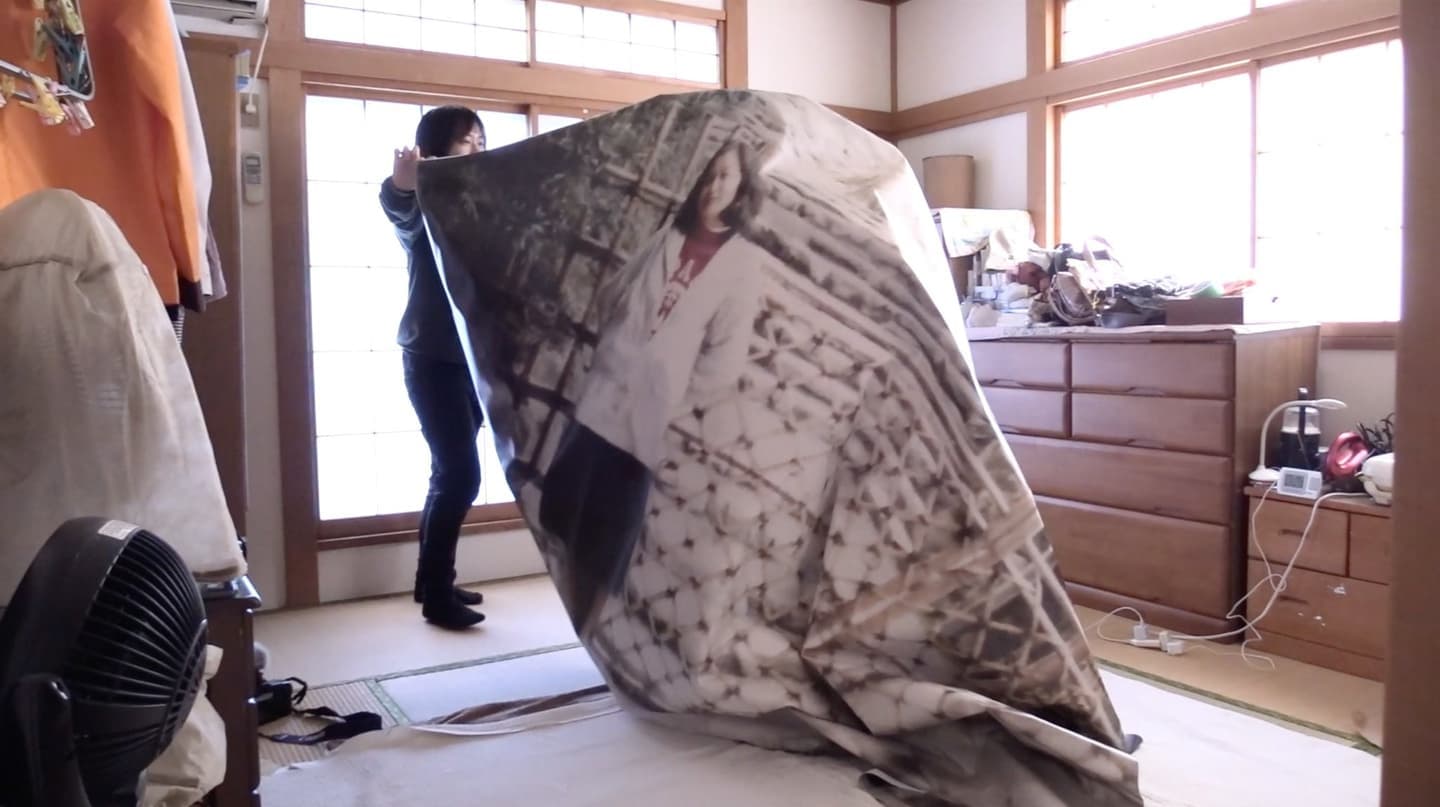
《母のいないとき》
When Mother Isn’t There
2021
Mixed media, Single channel video / 15 min 10 sec
Photography / Tarpaulin
現在の日本では夫婦別姓や同性婚も認められていないため、男性と女性が結婚をするとどちらかの姓に代えることが求められるが、姓を変えるのは圧倒的に女性が多く、全体の約95%は女性が姓を変えているという。(2023年度厚生労働省「人口動態統計」より)
私の母も同様であり、名前が変わるということはその人が望むと望まないにかかわらず、それまでの人生やアイデンティティを奪うところがあると思う。
そして、一方のジェンダーに属する人が殆ど負わなければいけない社会にはとても疑問があり、私は「田中 永峰 良佑」として父と母の姓を両方名乗り複数姓での活動をしている。
私は「私の母」になる前の彼女の人生に興味があった。
だから、そんな頃の姿が映っている写真を等身大に引き伸ばして、実家の夫婦の寝室に広げてみた。そして背後の風景を折り込みながら、当時の母の名前であった「永峰くるみ」に出会えないだろうかと思った。
「永峰くるみ」について覚えている話を聞きながら、二人でその写真を折っていった。
In Japan, married couples are currently not legally allowed to retain separate surnames. Upon marriage, one partner must change their name. And in the overwhelming majority of cases, that partner is the woman. (According to the 2023 Vital Statistics by the Ministry of Health, Labour and Welfare, about 95% of those who change their surnames upon marriage are women.)
Changing one’s name, regardless of whether it is willingly done or not, often means losing a part of one’s identity. I find it deeply troubling that such a burden is overwhelmingly placed on people of one gender due to social pressures. That is why I choose to go by both my father's and mother's surnames: Ryosuke Nagamine Tanaka .
I became curious about the life my mother lived before she became “my mother.”
So I enlarged a photograph of her from that time as her Life-size and spread it out in the bedroom she once shared with my father. As I listened to her speak about her life when she was still “Kurumi Nagamine,” We folded, wrapped her in, and gently interacted with the photo.
